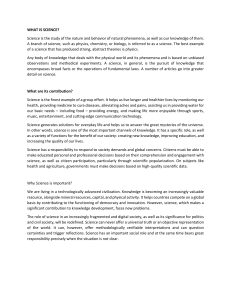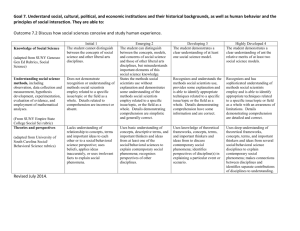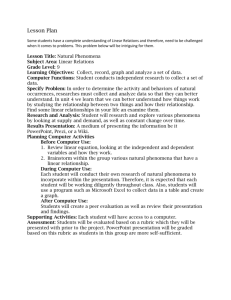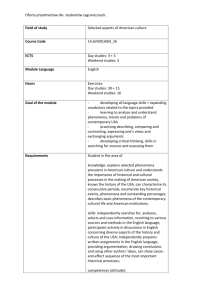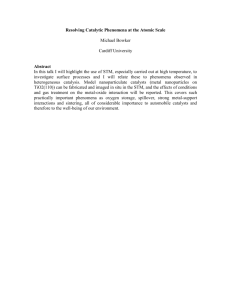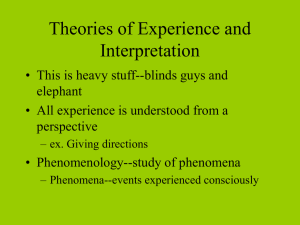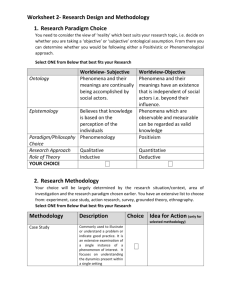Goal 5 Outcome 5.4 Big ideas in sciences
advertisement
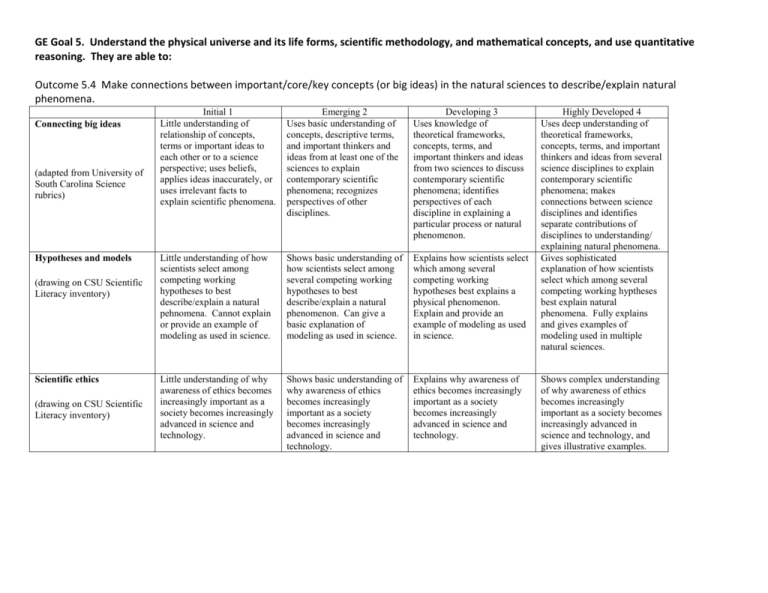
GE Goal 5. Understand the physical universe and its life forms, scientific methodology, and mathematical concepts, and use quantitative reasoning. They are able to: Outcome 5.4 Make connections between important/core/key concepts (or big ideas) in the natural sciences to describe/explain natural phenomena. Connecting big ideas (adapted from University of South Carolina Science rubrics) Hypotheses and models (drawing on CSU Scientific Literacy inventory) Scientific ethics (drawing on CSU Scientific Literacy inventory) Initial 1 Little understanding of relationship of concepts, terms or important ideas to each other or to a science perspective; uses beliefs, applies ideas inaccurately, or uses irrelevant facts to explain scientific phenomena. Emerging 2 Uses basic understanding of concepts, descriptive terms, and important thinkers and ideas from at least one of the sciences to explain contemporary scientific phenomena; recognizes perspectives of other disciplines. Developing 3 Uses knowledge of theoretical frameworks, concepts, terms, and important thinkers and ideas from two sciences to discuss contemporary scientific phenomena; identifies perspectives of each discipline in explaining a particular process or natural phenomenon. Little understanding of how scientists select among competing working hypotheses to best describe/explain a natural pehnomena. Cannot explain or provide an example of modeling as used in science. Shows basic understanding of how scientists select among several competing working hypotheses to best describe/explain a natural phenomenon. Can give a basic explanation of modeling as used in science. Explains how scientists select which among several competing working hypotheses best explains a physical phenomenon. Explain and provide an example of modeling as used in science. Little understanding of why awareness of ethics becomes increasingly important as a society becomes increasingly advanced in science and technology. Shows basic understanding of why awareness of ethics becomes increasingly important as a society becomes increasingly advanced in science and technology. Explains why awareness of ethics becomes increasingly important as a society becomes increasingly advanced in science and technology. Highly Developed 4 Uses deep understanding of theoretical frameworks, concepts, terms, and important thinkers and ideas from several science disciplines to explain contemporary scientific phenomena; makes connections between science disciplines and identifies separate contributions of disciplines to understanding/ explaining natural phenomena. Gives sophisticated explanation of how scientists select which among several competing working hyptheses best explain natural phenomena. Fully explains and gives examples of modeling used in multiple natural sciences. Shows complex understanding of why awareness of ethics becomes increasingly important as a society becomes increasingly advanced in science and technology, and gives illustrative examples.
